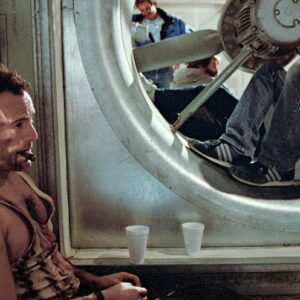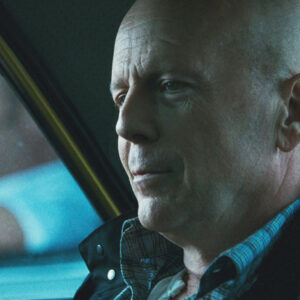Cillian Murphy’s name is synonymous with some of the most iconic performances in modern cinema. From his enigmatic portrayal of the Scarecrow in Batman Begins to his gripping roles in Inception and Dunkirk, Murphy has built a reputation as one of Hollywood’s most talented and versatile actors. But while his film career continues to skyrocket, there’s another side to his artistry that deserves equal recognition: his deep and accomplished work as a stage actor.
Though Murphy’s rise to fame is largely associated with blockbuster films, his journey as an actor began in the world of live theater. Over the years, his stage performances have showcased a remarkable range of talents, earning him critical acclaim and a devoted following. In this article, we’ll delve into Cillian Murphy’s achievements as a stage actor, exploring his early beginnings, key performances, and the profound influence his theater work has had on his film career. We’ll also examine how his dedication to the craft of acting, combined with his commitment to live performance, has shaped the actor he is today.
Early Beginnings in Theater
Cillian Murphy’s acting career did not start in the glitz and glamour of Hollywood. In fact, his first foray into the world of performance was rooted in the Irish theater scene. Born in County Cork, Ireland, in 1976, Murphy initially pursued a career in law before realizing that his true passion lay in acting. It was in Dublin that Murphy began to hone his craft, studying drama at the Drama School and performing with local theater companies, including the prestigious Drama School in Dublin’s Gaiety School of Acting.
His early experiences on stage proved to be formative, as he learned to connect with live audiences, embrace the immediacy of performance, and explore the depths of his characters. Murphy’s natural charisma and ability to transform into different roles caught the attention of many in the theater world, and he quickly became known as one of the most promising young actors of his generation.
Key Stage Performances
Cillian Murphy’s breakthrough on the stage came with his role in Disco Pigs, a play written by Enda Walsh. The production, which premiered in 1996 at the Cork Opera House, was a gritty, fast-paced drama about two childhood friends trapped in a toxic, violent relationship. Murphy’s portrayal of Pig, one of the two lead characters, was electric. His performance was raw and physically intense, capturing the wild and reckless spirit of a young man trying to navigate a world of chaos. It was a performance that garnered widespread attention, showcasing Murphy’s ability to immerse himself fully in the emotional and physical demands of a role.
The success of Disco Pigs helped launch Murphy’s career and set the stage for a series of high-profile theater roles. However, one of his most significant stage performances came later in 2002 when he took on the role of Hamlet in a production of Shakespeare’s iconic play at Dublin’s Gate Theatre. Directed by the acclaimed actor and director Robert Icke, this version of Hamlet was a bold reimagining of the classic text. Murphy’s portrayal of the troubled Danish prince was widely regarded as one of the standout performances of the decade. His interpretation was not only intellectual but deeply emotional, capturing Hamlet’s inner turmoil and the devastating weight of his existential crisis.
Murphy’s Hamlet was a revelation, cementing his status as a serious stage actor capable of taking on some of the most complex roles in the theatrical canon. His performance was marked by a rare combination of intellectual rigor and emotional vulnerability. The actor’s ability to convey Hamlet’s internal conflict — from the famous soliloquy to the final moments of the play — was a testament to his mastery of Shakespearean language and his profound understanding of character development.
Another notable stage performance came in 2005, when Murphy starred in The Pillowman, a dark and twisted play by Martin McDonagh. In this production, Murphy played the role of Katurian, a writer whose work is investigated by two police officers in a fictional totalitarian state. The Pillowman is known for its disturbing themes and morally ambiguous characters, and Murphy’s performance was both chilling and captivating. His ability to balance the humor and horror of the piece earned him widespread acclaim, further solidifying his reputation as one of the most versatile actors in both theater and film.
Range and Versatility
What sets Cillian Murphy apart from many of his peers is his remarkable range as an actor. Whether on stage or screen, Murphy has consistently demonstrated an ability to tackle a wide variety of roles, from the brooding anti-hero to the tortured intellectual, from gritty drama to absurdist theater. His versatility is one of the defining characteristics of his career, and it is most apparent in his theater work.
Murphy’s stage performances have often been praised for their emotional depth, physicality, and intellectual rigor. In particular, his ability to transform physically for a role is a testament to his commitment to the craft. Whether he is inhabiting the angular, tortured character of Hamlet or the unpredictable, manic energy of Pig in Disco Pigs, Murphy’s commitment to physical transformation is always apparent.
Additionally, Murphy’s intellectual approach to his roles stands out. He has an uncanny ability to fully understand the psychology and motivations of the characters he plays. In his stage work, this intellectual depth often shines through in the way he handles complex, multi-dimensional characters. Whether he is playing the tragic prince of Denmark or the morally conflicted writer in The Pillowman, Murphy consistently brings a depth of thought and emotion to his performances that resonate with audiences long after the curtain falls.
The Influence of Theater on His Film Work
While Cillian Murphy’s theater career has been extensive and critically acclaimed, it is his transition to film that has brought him international recognition. However, it’s impossible to ignore the profound influence his stage experience has had on his film career. His theater background has equipped him with a unique skill set that has allowed him to tackle some of the most complex and varied roles in film.
One of the most striking ways in which Murphy’s theater work has influenced his film performances is in his understanding of character development. On stage, the actor’s connection to his character is immediate and dynamic, as the performance is happening in real time. This experience has helped Murphy to translate that same intensity and immediacy to the big screen. His portrayals of complex characters — from the conflicted psychiatrist Dr. Jonathan Crane (Scarecrow) in Batman Begins to the cold and calculating Robert Fischer in Inception — are marked by the same emotional depth and intellectual complexity that he brings to his stage roles.
Murphy’s ability to evoke raw emotion on screen can also be traced back to his stage training. The intimacy of live theater demands that an actor connect with the audience on a visceral level, something that Murphy has carried with him into his film work. In movies like Dunkirk, where much of the emotion is conveyed through minimal dialogue, Murphy’s ability to communicate emotion through physicality, subtle gestures, and facial expressions is a direct result of his stage experience. His intense focus on character-driven storytelling — rather than relying solely on external spectacle — allows his performances to feel grounded and authentic, whether in a small independent film or a major Hollywood blockbuster.
Moreover, Murphy’s stage experiences have helped him navigate the challenges of film acting. The pacing and tempo of stage performances are markedly different from those in film, but Murphy’s ability to adapt to both mediums with ease speaks to his versatility as an actor. His immersion in live theater has allowed him to approach film roles with a sense of discipline and focus that few actors possess.
A Dedication to the Craft
One of the hallmarks of Cillian Murphy’s career, both on stage and on screen, is his unwavering dedication to the craft of acting. Murphy is known for his meticulous preparation and his deep respect for the work that goes into creating a character. Whether preparing for a stage role or a film project, Murphy approaches each role with the same level of intensity and commitment. His performances, whether on Broadway, in London’s West End, or in the intimate theaters of Dublin, reflect a deep love for the art form.
Despite his success in Hollywood, Murphy has never lost sight of his theatrical roots. Over the years, he has continued to return to the stage, reaffirming his commitment to live performance. His decision to take on challenging theater roles — even after achieving international fame — speaks to his respect for the craft and his desire to continue growing as an actor. In a world where many actors abandon theater for the allure of film, Murphy’s continued engagement with the stage is a testament to his love for the art form.
Conclusion
Cillian Murphy’s career as a stage actor is not just a footnote in his journey to Hollywood stardom — it is a critical component of his identity as an artist. From his early performances in Dublin to his standout roles in productions like Disco Pigs, Hamlet, and The Pillowman, Murphy has proven himself to be one of the most talented and versatile actors of his generation. His ability to seamlessly transition between stage and screen while maintaining a deep connection to his theatrical roots sets him apart as a true master of both worlds.
Whether performing on Broadway, in London’s West End, or in a small theater in Dublin, Cillian Murphy’s stage career continues to remind us that he is as much a master of the theater as he is of the silver screen. His dedication to the craft, his emotional depth, and his intellectual rigor make him one of the most well-rounded actors working today. And for those fortunate enough to witness his stage performances, it is clear that Murphy’s talents will continue to captivate and inspire for many years to come.





